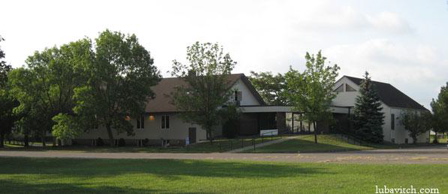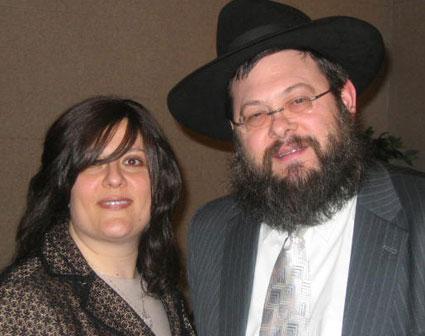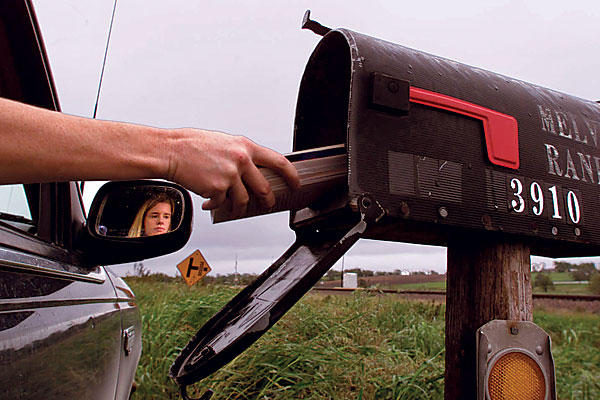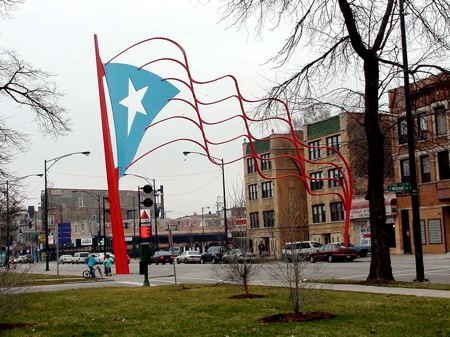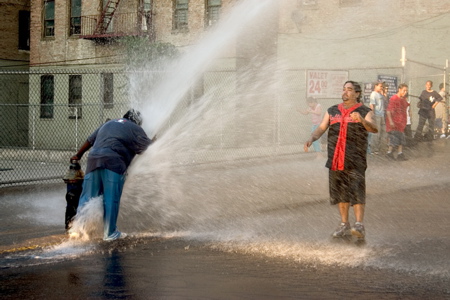Torah is the instruction for life.
I am sitting in class during the two-week retreat of Jewish Studies for women in the Twin Cities, MN. The class is titled “From Generation to Generation: Trace the origin of Jewish Laws, customs, and traditions.”
“If you were to open up the Torah, you would find stories,” said my teacher Leah Abraham. “The stories teach us about ourselves and how to serve G-d.”
To illustrate how the Torah shapes our views today, the teacher brings up the craziest story I have ever heard.
It is about goat uteri. It comes straight from the Talmud. And it shapes the lives of every Jewish woman.
Enjoy the video; it’s an excerpt from the class lecture.
I have decided to go to a Jewish Studies Retreat for Women.
This was my first time immersing myself in Jewish studies and diving into a Jewish environment for a period of time longer than a Shabbat. I was excited.
And I was nervous.
The two-week immersion program is being organized by Bais Chana, which is affiliated with Chabad Lubavitch. Being a conservative Jew, I did not know if I would feel like a fish out of water in an ultra orthodox retreat.
When I arrived at the 5-acre wooded land, the first thing I saw was three women walking down the street. I knew right away they were Orthodox Jews because of their long skirts and long-sleeve blouses.
Oh no! And here I was wearing a t-shirt and pants!
At the reception office, the organizer, with whom I had been in contact with over the phone, gave me a big hug to welcome me. She too was dressed in long sleeves and long skirt, but she did not mind the way I was dressed.
I had nothing to worry about.
A young woman walked into the building pulling a suitcase. She wore black tights and a t-shirt.
“Hi I’m Samantha from New York,” she introduced herself with a big smile. This was her second summer at Bais Chana’s retreat.
I then met a teenage girl from Pittsburg, who studies at a yeshiva.
Then a woman in her 60s walked in; she had flown in from Texas. She wore a hippie version of the long skirt and sleeve: she had on a long jean skirt and a white long sleeve blouse underneath an open shirt.
I realized then that the Chassidic house, with paintings of bearded men on its walls, was welcoming Jewish women of all backgrounds.
All of us have come together with one passion: to study Thorah and immerse ourselves in Judaism. Some are interested in the Talmud. Others in the Mashiach (the Messiah). As for me, I am here to learn prayers and Jewish Law.
On its website, Bais Chana sums up what the next two weeks will bring:
“You may not become a scholar at Bais Chana, but you’ll definitely leave with a more profound appreciation of your identity – as a Jew and as a woman.”
26
Jul
President Barack Obama spoke to the nation last night. His appearance on television prompted a heated discussion among a family I am visiting in Minnesota.
Previously, I did not know anything about my friends’ political or religious views. So when sitting in the living room last night, they suddenly said they did not like the president, I asked why.
“Don’t get me wrong. I’m not a racist. You know that,” The daughter told me. “But in the three years he has been president, he has done nothing. The country has become worse.”
I probed her further, pointing out that the precarious financial state of this country could not be fixed in just a few years.
“He has made the debt worse by spending money on abortion programs and giving aid to immigrants,” She explained.
“A lot of people think so,” the mother chimed in as she left the living room and headed for the kitchen.
“And [the president] supports gay marriages,” the father added. “I can’t stand this guy.”
I realized then that they were talking about their emotions and personal beliefs and not really about the economy. Otherwise how could anyone say that the $14,347-billion national debt is being caused by the aid to immigrants in the US?
In France, North Africans are considered to be the problem. In Minnesota, the Somali refugees are the new scapegoat.
Having worked as an immigrant counselor in the Chicagoland area, I tried explaining to my friends that refugees do not lead the high life on government money.
But logic does not work on emotions. The argument got even more heated, rolling from one subject to the next faster than I could keep up. I let the father and daughter go at it without me and tried to hear the president’s speech.
“I’m confident we can reach a compromise,” said the president on television. He added something about respect in our disagreement.
In the living room, the volume of the dispute went up a notch.
“Do you know the difference between voodoo and wicca?” the daughter asked.
“They’re all a cult,” the father barked.
“No, they’re not!”
On television:
“America, where every human view is welcome; where out of many, we are one.”
In the living room, the full-blown argument changed topic.
“You have never read the bible,” the father accused his daughter.
“Yes, I have. I just didn’t read it from front to back; it’s too boring,” the daughter defended herself.
“That’s not reading the bible,” the father retorted.
On television:
“So let’s seize this moment to show that The United States of America is still the greatest nation.”
The president’s 15-minutes speech is over and the father/daughter Christian duo are still arguing. Now the topic is: Why is the Da Vinci Code wrong?
“… I heard it on Christian radio,” the father yelled.
“You are believing what you heard, I know what I read,” the daughter yelled back. “I have read that book front to cover.”
“You can read it all you want,” the father shouted. “I don’t care.”
The shout-out had reached an impass. The mother stepped in.
“What is the rule in our house?” she interjected. “We don’t discuss politics. We don’t discuss religion. In this house, we can’t discuss personal views.”
And that is how I spent my evening in Minnesota.
I went shul hopping in Rochester, MN.
The first synagogue I tried was a reform one. It had a big beautiful, modern building that looked promising. On Shabbat morning, my friends dropped me off. I told them the service would probably last three hours.
As soon as I walked in the building, the rabbi said, “The service will be cut short today; I am leaving for the airport right after.”
I looked at her in total shock. She, the rabbi, was taking a plane on Shabbat? This synagogue was way too liberal for me. But since I was already there, I decided to stay for the service.
There were only two other people in the sanctuary: a woman and her soon-to-be-Bar-Mitzvah son. The service was a blur. We had a quick kiddush afterwards of grape juice and cookies. Then I left. I had two hours to kill before my friends returned.
For my next Shabbat in Minnesota, I chose to go to a more traditional synagogue. I found the Chabad-Lubavitch center on 2nd street. The center was a beige two-story house with a giant menorah on the front lawn. The black menorah must have been one-story high.
I pushed the door open _ ignoring the door bell since it was Shabbat _ and entered. There was a big open room on my left, divided by a carved wall partition, the mechitza, separating the men from the women. The rabbi came and welcomed me, showing me the women’s section. I was the first woman. There were two narrow tables with blue siddurim on them. Through the mechitza on my right, I could see the men davening (praying).
The rabbi was funny. Throughout the service, he told stories, made jokes while we waited for more men to arrive and make the necessary minyan (the quorum of 10 Jewish adults) for a complete service.
“We’re going to have a juggler today,” the rabbi announced.
A few minutes later, the young man showed up, soaked to the bone. He had been caught in the downpour outside.
“Do you want a siddur? Do you want a towel?” the rabbi joked.
The juggler made up the sixth men, not enough for a minyan (women did not count in an orthodox shul). So we read the parashah of the week from the Chumash, instead of the sefer torah. It was still a good, spiritual service.
Afterward, the rabbi’s wife invited all of us to the kiddush. The table was abundant with salads, gefilte fish, a big bowl of meat and potatoes and homemade challah and chocolate-chip biscotti. There was wine, grape juice, orange juice and even a bottle of vodka. Being somewhat vegetarian and not much of a drinker, I avoided the meat and the vodka and enjoyed the rest.
At the kiddush table, every story was an opportunity to learn and study. We talked about juggling and how it is mentioned in Jewish texts. The rabbi even went and got a book that described the art during the festival of sukkot.
We also talked about the Jews of Congo and my research on the subject. The rabbi asked if I had been to a Chabad center before. I told him once, in Edmonton, Alberta. The rabbi happened to know his colleague in Edmonton. I was amazed to hear he also knew the rabbi in Kinshasa, Congo.
I had a wonderful time at the Chabad center. The warm and welcoming rabbi and his wife can certainly serve as examples to the rest of us Jews. I look forward to returning to their synagogue next Shabbat.
In the Parisian region of France, the mail person rides a motorcycle to handle the deliveries. The bright yellow bike swings in and out of people’s driveways to drop off letters in the mailboxes.
In Sargeant, Minnesota (a town of less than 200 people), the mailman looks like a Harley Davidson biker with his bushy beard and baseball cap; but he drives a pick up truck. To say drive is an understatement. The mailman sits shotgun on the passenger seat to be within reach of the street lining mailboxes. Then, he reaches over to the left, grabs the wheel and drives on to the next house.
I haven’t figured out yet how he manages the brake and gas pedals. It would be so much easier for the US Post Office to order cars from England. The English cars come with wheels on the right side. At least the rural mail personnel would no longer need to be acrobatic.
20
Jul
In a cyber café in a banlieue of Paris, an immigrant man got inside a telephone booth, called Africa and started yelling non-stop.
With my iPad, I captured some of his rant. No one else in the room seemed to mind it.
When the man came out afterward, he was calm and smiling as if nothing was the matter. I don’t know what he said nor the language he spoke in (maybe Wolof?), but I recognize an angry tone when I hear one.
19
Jul
KASALA (Plural: Tusala) is a heroic Luba chant.
It can be a long poem that lists the names of people, lineage, clans, tribes, rivers, etc.
Kasala praises a person, dead or alive, famous or not (such as your next door neighbor). It can recount the glory of ancestral lineage, the battles of one’s clan against others, the conquests, the courage of a group of people, or simply remind listeners of their ancestors.
Kasala is a genre in traditionnel oral art. Without oral art, there is a danger for ancestral values to be lost and forgotten.
In this video, a Luba elder, Papa Kanyinda Bululu Etienne Marcel gives us a taste of kasala.
18
Jul
On Sunday afternoon, I went to visit a friend in Humboldt Park, a Chicago’s Northwest Side Puerto rican neighborhood. I buzzed the door to my friend’s building and heard a voice say:
“I don’t think that thing works.”
It was the neighbor next door. Sitting on his porch, he observed all the going and coming on his street.
“How is your neighborhood?” I asked him when he told me he had been living there for 20 years. “Is it safe?”
I had noticed broken glass in a parking space on a small street. By precaution, I parked on the main road.
“That buidling over there used to have shootings every night of the year,” said the 70 year-old man of Latino origin. “It didn’t matter if it was summer or winter.”
I glanced at the building he pointed to. It was kitty-corner to my friend’s apartment. Boy, was I glad the neighborhood had improved!
After a short visit, I left my friend’s air-conditioned apartment and was enveloped by the 90-degree heat outside. It was too hot and I was not the only one thinking so.
The neighbor I had spoken to earlier had left his seat on the porch and was now sitting in the back bumper of a Sport Utility Vehicle, with his feet in running water. It was like the street had turned into a river. I looked to the intersection on my right and discovered the source of the river.
The residents had unscrewed a red fire hydrant and water was now gushing out at high speed. People of all ages were enjoying the fresh jets. From toddlers to muscled-men with tatoos, they swam in the impromptu streams on the street, sat in them, walked in them.
A young man picked up his partner and brought her close to the jet to dump her in it. They both ended up falling on the pavement. The high-pressure water was too strong. No one was hurt; they were both laughing.
For the neighborhood, this must have been a familiar scene on a hot day. Big SUVs slowed down and drivers smiled as their cars got a free washing. The rules of the road no longer applied. You simply drove where there were fewer people on the road. The law of less resistance.
Someone said she hoped the police was not alerted; the open fire hydrant translated into low-water pressure in the neighborhood’s apartments.
I too walked in the streams, enjoying the freshness. My sandals would dry up soon enough. I silently thanked the soaking-wet residents for turning their streets into an attraction park _ Chicago style. This was no Millenium park fountain, but it sure was as much fun.
17
Jul
London was a series of connections, bridging my travels in France and my future projets.
As soon as I arrived at the Victoria Coach Station, I met a classmate with whom I studied in Iowa and who happened to be in England. I also got to meet my cousin Kayembe for the very first time.
We all headed to an English pub.
“A gastro pub,” the waitress specified.
None of us knew what that meant, including my cousin who had been living in England for the past 25 years. We figured it must have something to do with waiting for the waitress to serve you, instead of ordering at the bar.
While we waited for our food, my friend explained he was working on an economic system that intended to bring about a paradigm shift. I was intrigued and wanted to interview his boss. My friend called him to see if he was available within the next 12 hours before my flight the next day. Yes, he was available, but only if we went to see him that instant; afterwards, he was in meetings until midnight.
My stomach was growling for the food we were still waiting for and I really wanted to chat more with my cousin who had driven 3 hours from the suburbs to see me.
I had to let go of the interview. I was rewarded with a beautiful plate of salmon and potatoes.
When I asked my cousin for genealogy information, he said he had so many brothers and sisters that he did not know all their names, never mind their birth dates.
“How many siblings do you have?” I wondered. I know the names of all my 20 siblings. How bad could it be for him?
“I have 40 siblings!” he declared.
Forty? I am so glad I stayed at the pub instead of taking off on an interview. Who could pass out such opportunity to update a family tree!
My cousin is very British. It was interesting to talk to him and have a feeling that I was talking to a Brit. Except for his utmost generosity and compassion, there was not much Congolese left in him. He was skeptical about everything. Is that a British trait?
After the pub, my cousin hopped on his 4X4 to return home and the rest of us got on a double-decker bus. Another first time experience. I certainly looked like a tourist, snapping photographs every 2 minutes.
We arrived at the place where I would be couch surfing for the night, at Thulane’s apartment. Tall and big, this British guy of Zimbabwean origin certainly made an impression everywhere he went. His quick, firing mind was just as impressive. I stayed up until 3:30 a.m. talking (well, mostly listening to him) about black people’s condition in the world today. He is such a good orator that I pulled out my flip to film him.
The next day, as Thulane walked me to the closest subway (or tube, as they call it in London), we learned that my flight to New York was postponed. Perfect! It gave us more time to discuss how to raise awareness and re-build blacks’ identity with my media project. Sitting on a bench in the subway station, we let several trains pass by as we worked on the marketing of the project.
Thulane’s one liner description of what our film crew would be sent me rolling down with laughter. We must have been quite sight on the tube platform.
At Heathrow airport, I got on the plane, realizing that my time in London had been productive beyond my expectations: with personal and professionnal connections made, and 40 people added to my family tree. All this, on 2 hours of sleep.
15
Jul

A world without border. A rallye against Anglo-French Border Control (Photo from www.indymedia.org.uk)
In England, immigration officers do not discriminate. They are mean to everyone. The fact that you are American, Senegalese or Chinese is of little importance to them.
That’s a stark difference from the U.S., where I saw an immigration officer at JFK airport joke with two British passengers.
But here it is Great Brittain, you see. They offer no smile, just posters saying you better be nice to them otherwise you get arrested.
So at the border between France and England, we get off the bus and apprehensively wait in line to show our passports. In the queue, a French worker, who is directing people to the appropriate windows, breaks the ice.
“What’s your nationality?”
“USA”
“USA? Oh! The country of Chuck Norris.”
I laugh and relax. Even the tight lip British officer at the counter cannot wipe out the smile on my face.
“How do you get to travel? You’re a student.”
“Well, I am also a journalist,” I tell him.
I am fortunate, he quickly stamps my passport and hands it back to me without a word. No ‘Have a nice day!’ or ‘Bonne journée!’ or even ‘Welcome to England’.
It could have been worse, I say to myself. I could have been detained for more questioning. That’s what happened to a friend of mine … because he told the truth:
“I am in England to work on a system that will change the world economy.”
His truth seemed too suspicious to them. They interrogated him for 8 hours.
Maybe immigration gates should be illegal. I once met a parliament member of Burkina Faso who said visas are unethical. They are used to keep the poors outside of one’s doors.
With my brand new U.S. passport, I quickly pass through border controls without a visa; the same will be for a European Union passport or a Canadian one. Had I been using a Congolese travel document, it would have taken me months to obtain a visa and details of my bank account would have come into play.
My new American nationality is opening doors.


